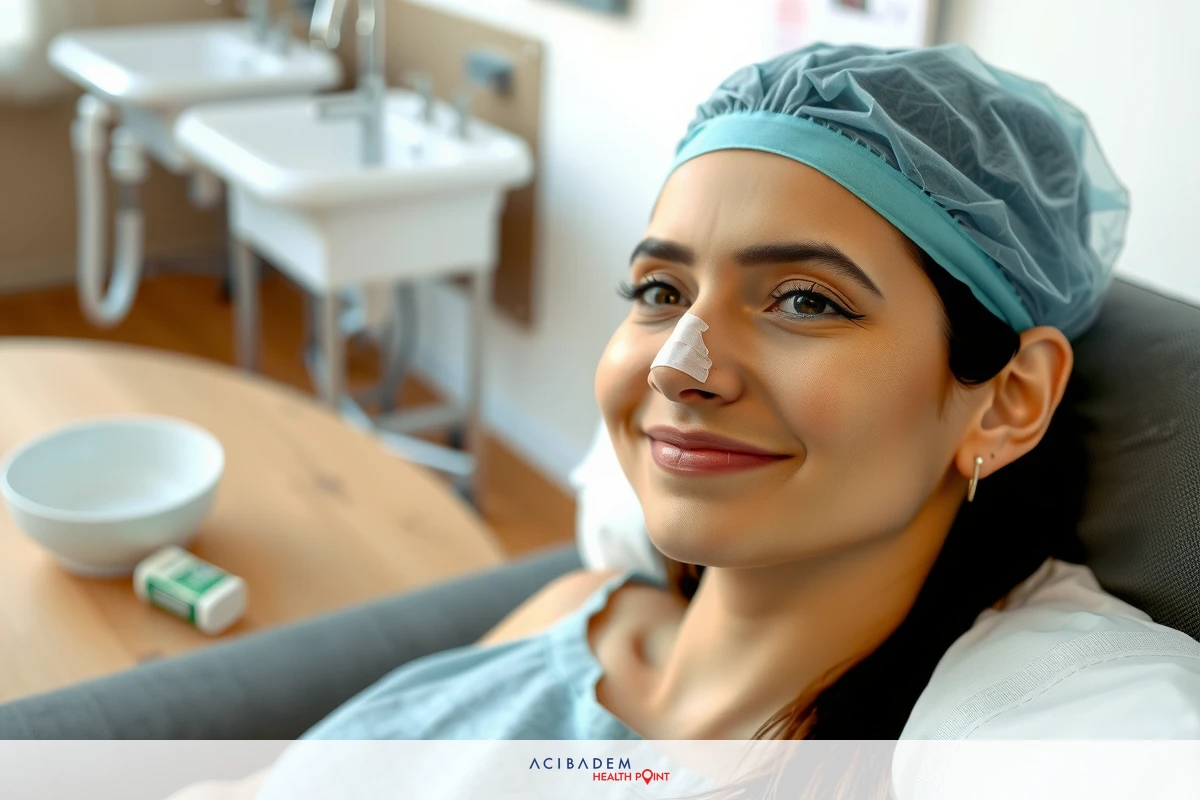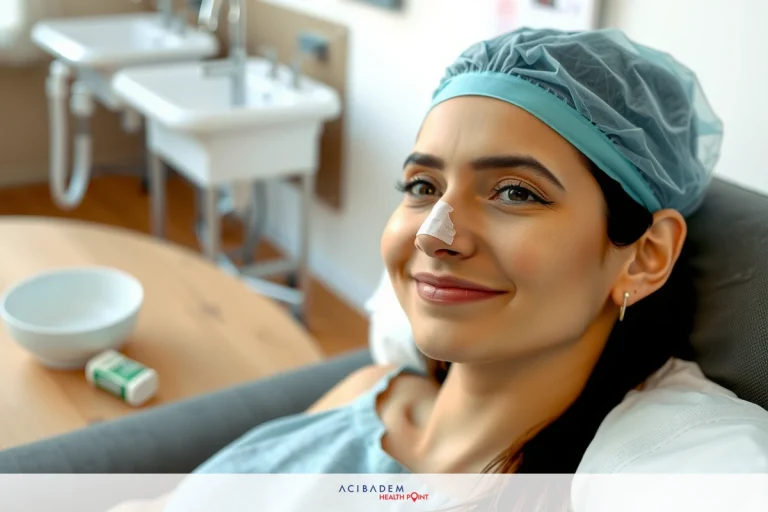Is it Bad to Shower After Rhinoplasty?
Is it Bad to Shower After Rhinoplasty? Rhinoplasty, a powerful tool for facial enhancement, carries with it the intricacies of post-operative care. One aspect that often raises eyebrows is whether showering could potentially hamper the recovery process or not. The fear stems from concerns about water interacting with surgical wounds, possibly leading to an infection and delaying healing.
Contrarily, some believe in the therapeutic potential of a good shower after surgery. They argue that cleanliness promotes faster healing and reduces chances of cross- contamination. However, there’s more than meets the eye when it comes to this seemingly simple act of self-care following rhinoplasty; timing, method and precautions play influential roles.
Navigating through these contrasting views can be challenging for patients looking for straightforward advice on their path towards successful recovery. With proper guidance based on expert opinions and patient experiences alike, one can make informed decisions about incorporating showering in their post-op routine without risking complications.
Showering After Rhinoplasty
The intersection of showering and rhinoplasty is a topic that demands careful consideration. Post-operative care following rhinoplasty is an intricate process, with individual actions potentially influencing the recovery trajectory. Among these actions, showering has particular significance due to its dual role in promoting cleanliness and ensuring comfort.
On one hand, bathing after surgery can be seen as a crucial hygiene practice. By keeping the body clean, patients can reduce the risk of potential infections that could complicate recovery. Moreover, maintaining personal hygiene contributes positively to mental well-being during this period of physical healing.
It’s not as simple as turning on the tap and stepping under the water stream post- rhinoplasty; there are precautions to bear in mind. Direct exposure of surgical sites to water may have undesirable consequences such as softening protective scabs or exacerbating swelling around the operated area.
An often overlooked aspect regarding showering after rhinoplasty relates to temperature control. While a hot bath might sound tempting for relaxation purposes, excessive heat can lead to increased blood flow in nasal tissues causing unnecessary inflammation which prolongs healing time.
Understanding how best to incorporate showering into your post-operative routine requires more than just knowledge about its benefits for overall hygiene and comfort — it necessitates awareness about potential risks associated with improper practices too. It’s all part of a comprehensive approach towards achieving successful recovery from rhinoplasty: every measure counts!
Advice on safe ways to bathe becomes invaluable for patients navigating their way through post-op self-care routines following nose reshaping procedures — because ultimately we want our journey back health be smooth sailing without any unexpected detours along way! So pay close attention next section where we offer practical tips ensuring your showers don’t interfere but rather aid progression towards fully healed state.
Benefits of Showering
When it comes to showering after rhinoplasty, the benefits extend beyond mere cleanliness. It’s a multifaceted ritual that holds potential for speeding up healing and boosting overall well-being post-surgery. However, like all aspects of recovery, understanding how to optimize these advantages is key.

- Promotes Hygiene: Bathing helps remove any residual blood or mucus around the nasal area which can reduce chances of infection.
- Enhances Comfort: A gentle warm shower may help soothe body aches associated with surgery, making patients feel more comfortable during their recovery period.
- Encourages Circulation: While hot showers should be avoided due to risk of swelling, a lukewarm bath could stimulate circulation aiding in faster wound healing.
- Improves Mood: Maintaining personal hygiene often has psychological benefits as well—feeling clean and refreshed can improve mood and positively affect your post-operative experience.
- Offers Gentle Exercise: Standing in the shower promotes mild physical activity; this engagement encourages movement without straining surgical sites.
It’s important to note that while these are general benefits related to showering post- rhinoplasty, individual experiences may vary depending on personal health conditions and specific surgical procedures involved. Always consult your healthcare provider about your unique circumstances before incorporating new practices into your routine; they’re best equipped with knowledge tailored just for you!
Tips for Showering Safely
Showering after rhinoplasty, while beneficial, requires a strategic approach to ensure safety and efficacy. It’s not about simply stepping under the shower head; it’s a calculated balance of timing, temperature control, and careful cleaning to avoid any negative impact on the healing process.
- Wait for the Right Time: Generally, you should wait 48 hours post-surgery before taking your first shower. This allows initial wound healing.
- Control Temperature: Keep showers lukewarm rather than hot as excessive heat can increase swelling around surgical sites.
- Protect Your Nose: Use protective measures like applying Vaseline inside nostrils or using waterproof dressings if advised by your surgeon.
- Avoid Direct Spray: Don’t let water directly hit your face; instead allow it to cascade down from your hair onto the rest of your body.
- Gentle Cleaning Around Nasal Area: When washing face or hair, be gentle around nose area to prevent disturbing surgical sites.
It’s important that these tips are viewed as guidance rather than rigid rules—every patient is unique in their recovery journey with varying needs based on individual health status and specific procedural details involved in their rhinoplasty surgery. Therefore always consult with healthcare professionals regarding best practices tailored specifically for you!
Frequently Asked Questions
How long should I wait before my first shower post-rhinoplasty?
Generally, it's recommended to wait at least 48 hours after surgery. However, you should always follow your surgeon's specific instructions.
Can I wash my hair during a shower after rhinoplasty?
Yes, but be careful. Avoid letting the water hit your face directly and try not to tilt your head back too far as this may cause discomfort.
Can taking baths instead of showers harm my recovery process?
Baths can potentially submerge surgical sites in water which isn't recommended soon after surgery. Stick to showers unless otherwise advised by your healthcare professional.
Is there any risk if water enters into my nose while showering?
Directly getting water inside your nostrils might soften protective scabs or cause discomfort due to pressure changes—so it’s best avoided!
These are general answers and individual circumstances may vary. Always consult with healthcare professionals regarding any concerns related specifically to your case!











